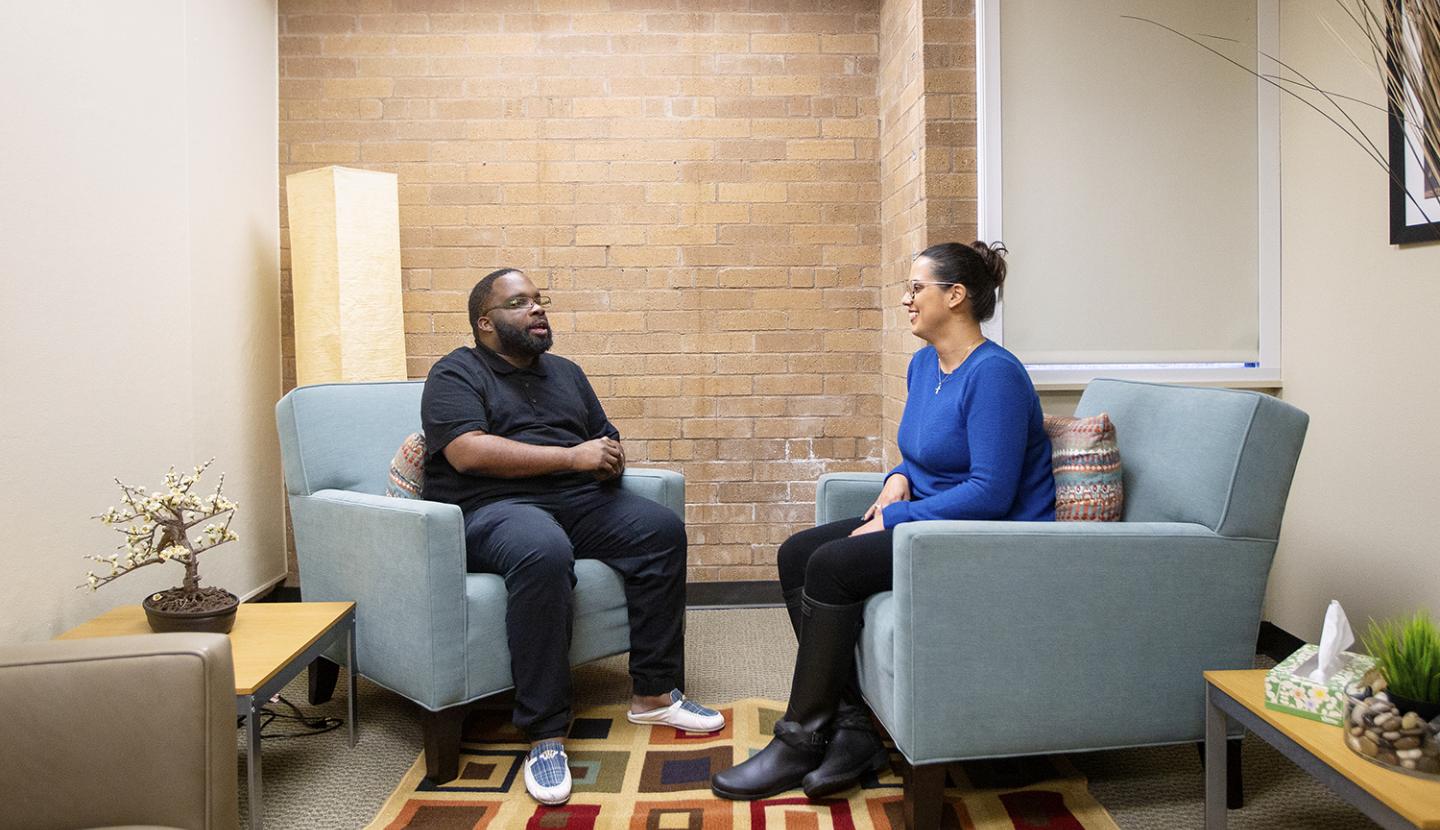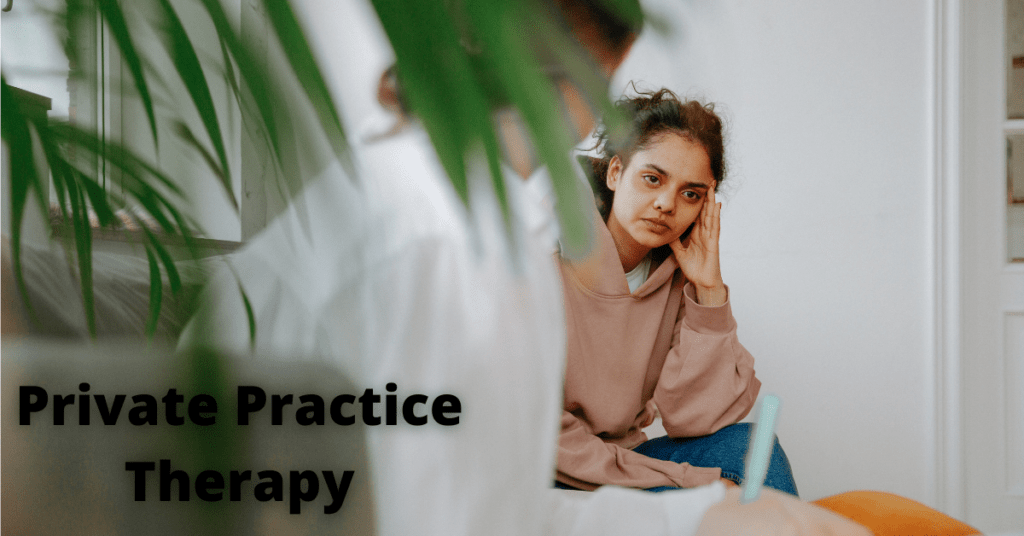Do you need help with your mental health? Private practice therapy is a great option that can provide you with the support and guidance that you are looking for. Therapy sessions allow patients to work on their issues in private, without distractions or social pressures. Group therapy provides an additional form of care that can be beneficial depending on the situation. Check out this blog post for more information about what it means to have private practice therapy.
Contents
What Is Private Practice Therapy?
 Private practice therapy is a private mental health service where clients attend one-on-one sessions with their therapist. The type of treatment and the frequency of appointments varies by individual but can include psychotherapy or talk therapy to address issues such as depression, anxiety, stress management, addiction recovery, and other psychological concerns. Private practices typically see people who are looking for additional help beyond what is available through traditional forms of healthcare such as hospitals, community centers, and free clinics.
Private practice therapy is a private mental health service where clients attend one-on-one sessions with their therapist. The type of treatment and the frequency of appointments varies by individual but can include psychotherapy or talk therapy to address issues such as depression, anxiety, stress management, addiction recovery, and other psychological concerns. Private practices typically see people who are looking for additional help beyond what is available through traditional forms of healthcare such as hospitals, community centers, and free clinics.
Additionally, those seeking services may do so because they cannot afford insurance out-of-pocket expenses or prefer an alternative form of care over more conventional options like medication prescriptions. Some therapists also offer clinical trials You can cover these by the insurance if you complete this by participating in a facility under the care of a licensed physician.
What to Expect from Private Practice Therapy?
The expectations from the sessions vary depending on the goals of your individual treatment plan. However, in most cases, you can expect to meet with your therapist once per week for about 45 minutes each time. Although this format is not exclusive across private practice therapists, many professionals offer both short-term and long-term options that include hourly appointments as well as ongoing services over longer periods of time.
Private Practice Therapy Procedure

The first step in seeking help through private practice therapy is finding the right therapist for you. You can do this by asking around, searching online directories or reviews, or contacting your insurance company for a referral. You may want to interview potential therapists before making your final decision and ask about their experience with treating the specific issues you are experiencing.
The second step is to schedule your first appointment and complete any new patient paperwork that may be required. You can expect the initial meeting(s) to include a discussion about you, your goals for therapy, as well as an evaluation of current issues or concerns. The therapist will offer insight into treatment options based on their professional opinion and expertise in the field.
Finally, during sessions, you should feel comfortable with both yourself and your therapist. If at any time something feels wrong or off-putting then it is important that you speak up! A good relationship between client and therapist is crucial because it builds trust which allows treatment plans to progress smoothly towards positive results over time.
Private Practice Therapy Sessions

These therapy sessions are typically weekly with a 45-minute duration. However, there are some therapists who offer hourly sessions as well as group therapy options that may include family members or loved ones of the client’s choosing to support them during this life stage.
The initial appointment typically includes a discussion about you and your goals for treatment along with an evaluation of current issues. The therapist will then outline their professional opinion regarding potential treatments while offering insight into what should be expected during counseling sessions moving forward. Clients can expect these appointments to last roughly one hour each week over three months total; however, it is important to understand that everyone responds differently to various types of therapies so timelines cannot always be guaranteed in private practice settings alone.
The sessions should be comfortable for both you and your therapist, but if there are any concerns or issues feel free to voice them! A positive relationship between client and therapist is crucial in order for treatment plans to progress smoothly.
How To Start Private Practice Therapy?

Starting private practice therapy can be done by asking around for referrals, contacting your insurance company for a list of participating therapists, or searching online directories and reviews. You may also want to interview potential therapists before making your final decision.
These are the things you should keep in mind to make your first appointment successful:
- Find the right therapist for you.
- Schedule an initial face-to-face meeting(s) to discuss goals, evaluation of current issues/concerns, and outline potential treatments with insight into what can be expected during counseling sessions moving forward.
- During appointments, clients should feel comfortable with both themselves and their therapists. If anything feels off or wrong speak up! Having a positive relationship between client and therapist is crucial in order for treatment plans to progress smoothly over time towards achieving desired results.
Benefits of Private Practice Therapy
These are some of the benefits of private practice therapy:
Helps To Address Personal Concerns
Sessions are tailored to the client’s specific needs and want unlike in group therapy settings where everyone follows the same plan. This therapy is ideal for treating an array of concerns which can include:
Mental health issues such as depression, anxiety disorders, and bipolar disorder.
- Relationship problems.
- Addiction recovery.
- Self-esteem improvement.
Keeps Client’s Personal Information Private
 Private practice therapists are only obligated to keep client records for a certain number of years depending on the state. These documents can be accessed by clients themselves for specific reasons.
Private practice therapists are only obligated to keep client records for a certain number of years depending on the state. These documents can be accessed by clients themselves for specific reasons.
Helps To Build Rapport and Trust
The therapist-client relationship is key in private practice therapy. This trust allows for positive treatment progress to occur over time as the client openly discusses personal concerns with their therapist.
Sessions are Affordable
In comparison to group therapy settings, private practice sessions tend to be more affordable because they do not require a large number of participants. The average cost per session generally ranges from $50-$100 depending on location and therapist experience/credentials.
Keeps Sessions Short and Focused
 Private practice sessions are typically shorter in length (50-60 minutes) as opposed to group therapy settings which can last upwards of 90 minutes. This allows for more concise conversations between therapist and client that focus on the identified goals for treatment.
Private practice sessions are typically shorter in length (50-60 minutes) as opposed to group therapy settings which can last upwards of 90 minutes. This allows for more concise conversations between therapist and client that focus on the identified goals for treatment.
Side-Effects of Private Practice Therapy

These are the side-effects of private practice therapy:
Loneliness.
This side-effect typically only occurs when the therapist conducts the session over the phone or online and not in person. Loneliness sometimes connects to a lack of social support. This can be addressed by joining a therapy group or talking to friends and family about what is going on in sessions.
Therapist Becomes Too Personal
If the therapist-client relationship progresses too quickly then boundaries may become blurred. In these cases, it is important for the client to communicate their feelings and set boundaries with the therapist. Doing so will help to maintain professionalism between both parties.
Inability To Find A Therapist
This side-effect is mainly due to two reasons. There are not many therapists who offer private practice therapy. The second reason is the therapist you want does not accept your insurance plan. If this becomes an issue, try widening your search parameters or contacting other therapists for consultations before making any decisions.
Failure To Follow-Up
In some cases, clients may not feel the need to continue meeting with their therapist after sessions have ended. This can be due to a number of reasons such as feeling better or resolving the identified concern. If this is the case, simply communicate this to your therapist and provide closure in a respectful manner.
Conclusion
In conclusion, private practice therapy is a beneficial treatment option for those seeking personalized care. It allows clients to address personal concerns in a confidential setting while building rapport and trust with their therapist. Sessions are affordable and typically shorter in length, making them more manageable. However, there can be some side-effects of private practice therapy, the most common being loneliness or failure to follow-up. If you are considering this form of treatment, be sure to weigh the pros and cons carefully. This is before making a decision.
For more information, please contact MantraCare. Online therapists are increasingly important in today’s world because they provide a convenient and accessible way for people to receive mental health support and treatment. Visit MantraCare If you are searching for “therapist near me”. Book a trial Online therapy session


